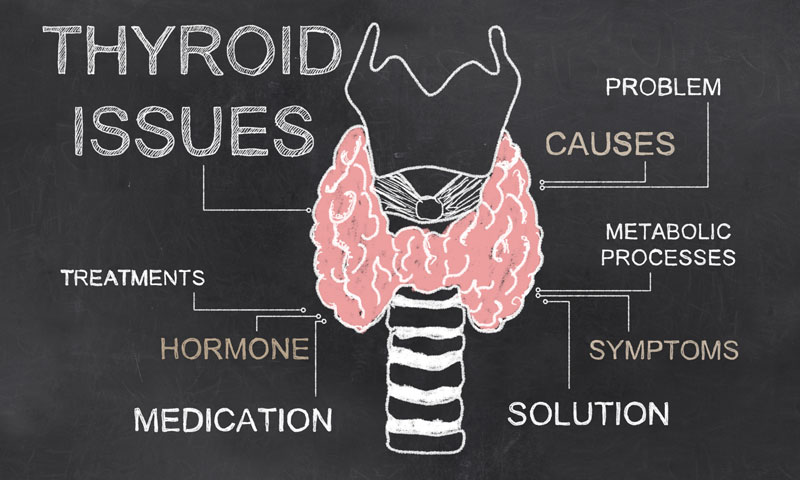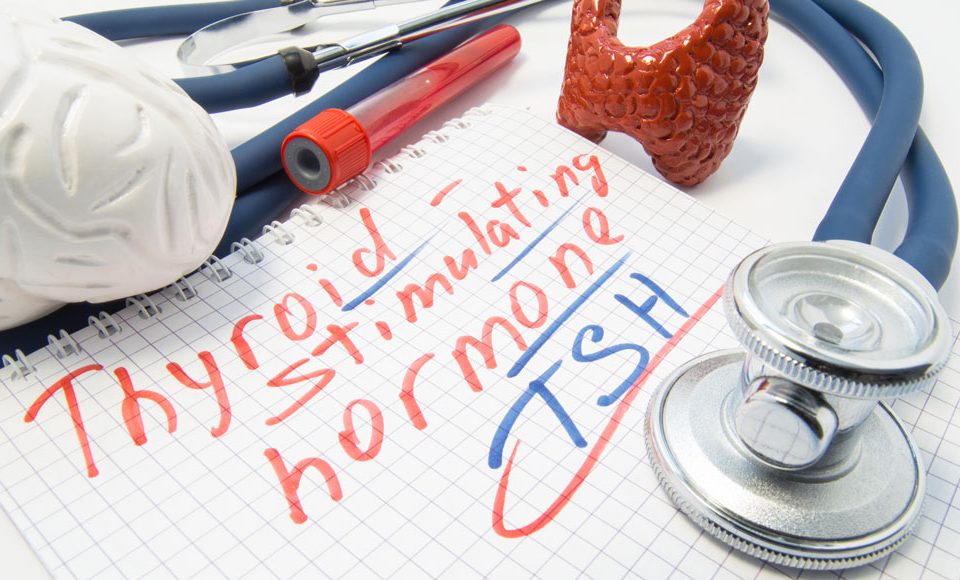Hashimoto’s Thyroiditis and Stress– Connecting the Dots
Do you think that your stress can be related to the development of autoimmune thyroid disorders?
Stress is never a “stand-alone” in the development of autoimmune thyroid problems such has Hashimoto’s Thyroiditis but it is often a factor. Stress hormones, when persistently elevated, affect our immune system in a way that makes it less efficient. When this happens, we have more trouble fighting infections but there can also be healthy tissue that gets caught in the crossfire from over reactivity of other aspects of the immune system.
My patients with Hashimoto’s Thyroiditis will often describe flares in their thyroid symptoms during times of stress. In part. this is due to underlying inflammation which adds to autoimmune response. This inflammation is exacerbated by stress. We also know that an increase in cortisol (stress hormone) reduces thyroid hormone production as well.
The Timeline Holds Clues for Hashimoto’s Thyroiditis
It is important to think about stress and your autoimmune thyroid disorder by looking at your own personal health timeline. When were you diagnosed with Hashimoto’s Thyroiditis and when did you first develop your symptoms of the problem. The Functional Medicine approach looks at the timeline of the problem as a clue to the causal factors. Did your autoimmune condition develop after a period of prolonged stress? A divorce? Death of a loved one? An emotional trauma? We often see this pattern in the history of those with autoimmune thyroid conditions and know unraveling this is part of the long-term strategy of immune system support. I see this pattern very often in my clinical practice. Again, it is never the only factor but often something must pay attention to improve balance in the immune system.
In a recent study of 60 women with Hashimoto’s thyroiditis, measurements of anti-TPO (Thyroid Peroxidase Antibody) were done before and after an 8 week stress management program. Antibodies were found to be decreased in the intervention group suggesting decreased inflammation and an improvement in the autoimmune spectrum of disease.
Getting thyroid antibodies to improve is never a quick fix but I can tell you that I often see significantly elevated levels move closer to the normal range over time. It typically takes persistence and chasing after underlying factors and stress is often a major one.
Testing Stress Hormones For Hashimoto’s Thyroiditis
There are often clues on your thyroid labs that stress may be a factor for Hashimoto’s. Often we see abnormalities in T3 and Reverse T3 levels as a hint that stress hormone may be imbalanced. Saliva cortisol testing throughout the day can be very helpful. There are many ways to treat stress hormone imbalances. Lifestyle interventions such as meditation and exercise can be very helpful as can herbal adrenal support and sometimes even medications.
Addressing Hashimoto’s Thyroiditis Flare and Stress
It is important when you feel “off” with your Hashimoto’s Thyroiditis symptoms to think about what is going on in your life and ask, “Am I stressed?” If so, that is the time to act and try to offset those stressors when possible. We often test the thyroid function during those times and it is easy to just simply adjust medication if needed but if that is our only move, then we are missing the opportunity to reduce inflammation and potentially save more thyroid tissue from the damaging autoimmune process. Flares will happen and it is good to have an action plan for when they do to reduce inflammation and shorten them. Your flare plan should at least consider stressors with some “go-to” treatment options for your Hashimoto’s Thyroiditis.
The Pathogenesis of Hashimoto’s Thyroiditis: Further Developments in our Understanding.
Ajjan RA, Weetman AP.
Horm Metab Res. 2015 Sep;47(10):702-10. doi: 10.1055/s-0035-1548832. Epub 2015 Apr 16. Review
Tsigos C & Chrousos GP 2002. Hypothalamicpituitary-adrenal axis, neuroendocrine factors and stress. J Psychosom Res 53 865–871
Stress Management in Women with Hashimoto‘s thyroiditis: A Randomized Controlled Trial.
Markomanolaki ZS, Tigani X, Siamatras T, Bacopoulou F, Tsartsalis A, Artemiadis A, Megalooikonomou V, Vlachakis D, Chrousos GP, Darviri C.
J Mol Biochem. 2019;8(1):3-12.
Moncayo R & Moncayo H 2014. The WOMED model of benign thyroid disease: acquired magnesium deficiency due to physical and psychological stressors relates to dysfunction of oxidative phosphorylation. BBA Clin 3 44–64





